Coronavirus: Why are people wearing masks and do they work?
- Published
- comments
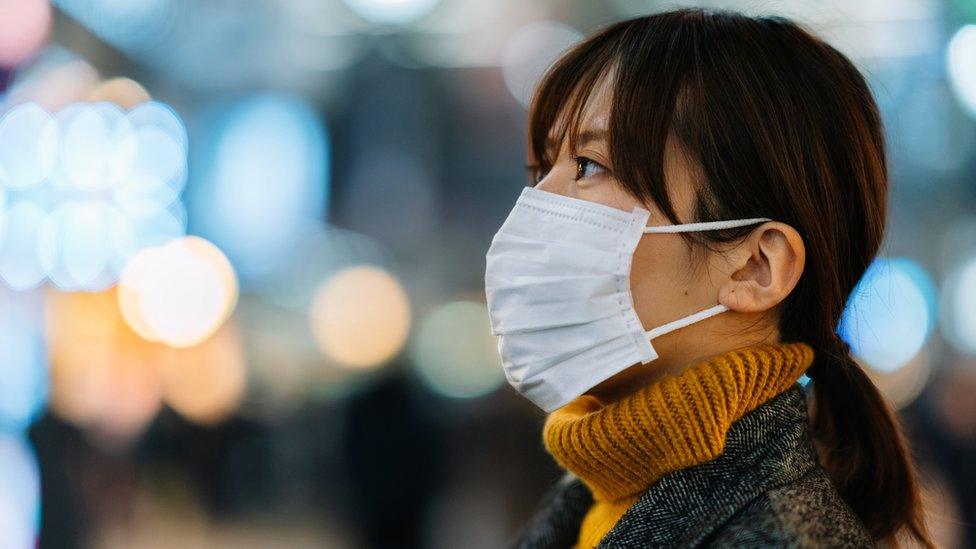
In some news reports about the coronavirus, you've probably seen people wearing fabric masks to cover their nose and mouth.
They're something you'd expect to see people wearing in a hospital, but in Wuhan - the area of China where the virus was first detected - the authorities have encouraged the public to wear them too.
Even outside of China, people in neighbouring countries like Malaysia, Singapore, the Philippines and Thailand, and even in the UK, people have been seen wearing them.
What are they for, and do they work?
Many people wearing the masks now are doing it to try and protect themselves from infection.
In a hospital, doctors and nurses wear these kinds of masks during surgery, to stop any bacteria or infection they might have from coming into contact with their patient.

The demand for face masks in China is so high that many shops sold out shortly after coronavirus was first reported, with around 200 million masks being bought every day
But while they may be effective in stopping people from passing on germs to others, doctors aren't all convinced that wearing the masks will stop people from getting ill.
Dr Jake Dunning, head of emerging infections and zoonoses at Public Health England, said: "Although there is a perception that the wearing of facemasks may be beneficial, there is in fact very little evidence of widespread benefit from their use outside of these clinical settings."
He said masks had to be worn correctly, changed frequently and got rid of safely if they were to work properly.
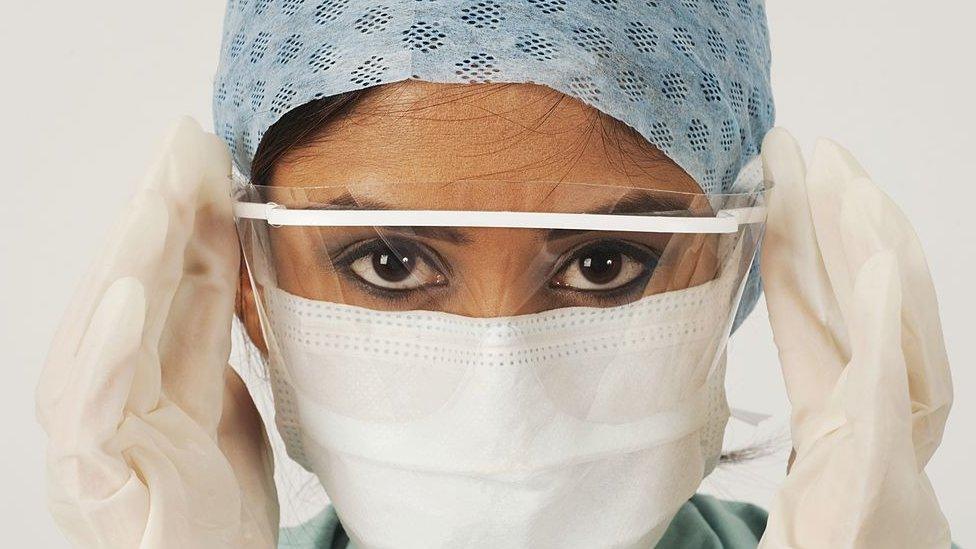
Doctors often wear masks which offer greater protection, like this one which also covers the eyes
Dr David Carrington, of St George's, University of London, seems to agree, telling BBC News that "routine surgical masks for the public are not an effective protection against viruses or bacteria carried in the air," because they were too loose, had no air filter and left the eyes exposed.
Experts have warned coronavirus could enter the body through the eyes, which the majority of the masks on sale don't cover.
To be properly protected against infection passed on through air particles, you would need a mask with a specialised air filter - but the sale of surgical masks isn't regulated, and so how effective the mask filters the air you are breathing in, can vary hugely.
It depends on factors such as who has made it and the material used.
WATCH: Operation Ouch doctors, Dr Chris and Dr Xand explain the coronavirus
Jonathan Ball, Professor of Molecular Virology at the University of Nottingham, also warns that even when masks with good filtration are worn, it's hard to tell if they really help, saying "it's quite a challenge to keep a mask on for prolonged periods of time".
Others say the masks do offer some protection against hand-to-mouth transmissions, as people are less likely to touch their face or mouth when they have a mask on.
But even then, you can still protect yourself by simply having good hygiene.
This includes taking steps like covering your mouth while sneezing, not touching your mouth until you've washed your hands, and regularly washing them with soap and warm water.
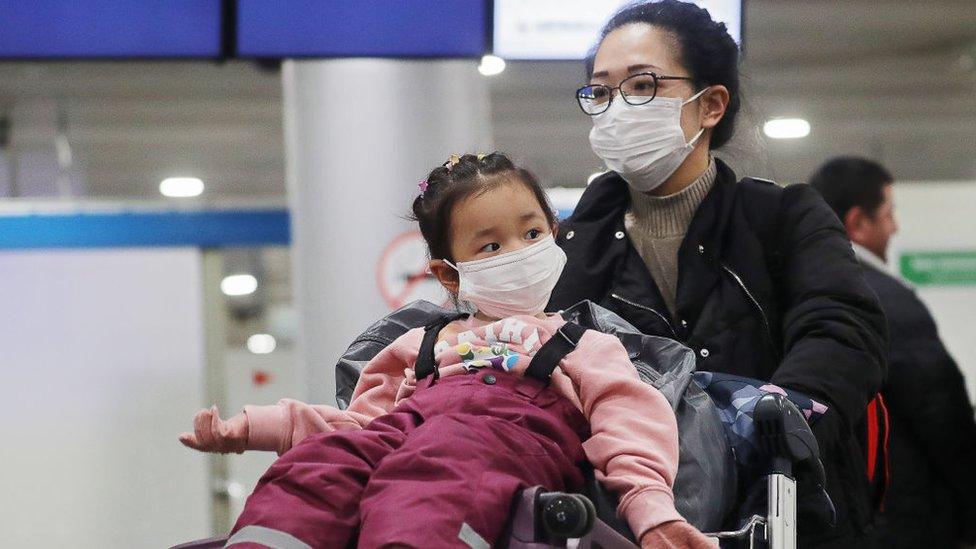
People leaving China to fly to other countries have been wearing the masks - including young children
Dr Connor Bamford, of the Wellcome-Wolfson Institute for Experimental Medicine at Queen's University Belfast, worries that the masks might even have a negative impact.
He says: "Research also shows that compliance with these recommended behaviours [washing hands etc] reduces over time when wearing facemasks for prolonged periods."
So he would rather people focus on good personal and hand hygiene if they are concerned.
Why else do people wear masks?
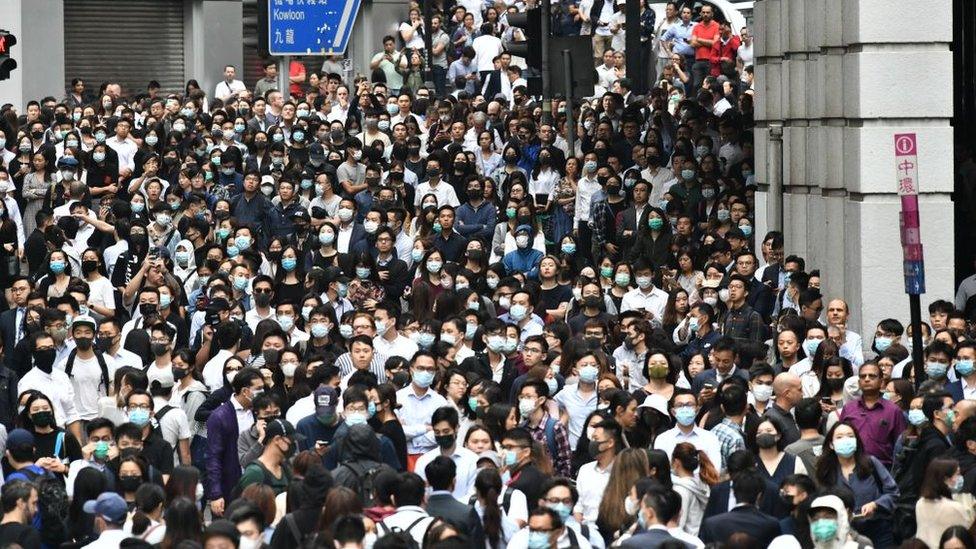
Even before the coronavirus outbreak, many people in Asian countries regularly wore masks like this, for a wide variety of reasons.
To protect against germs
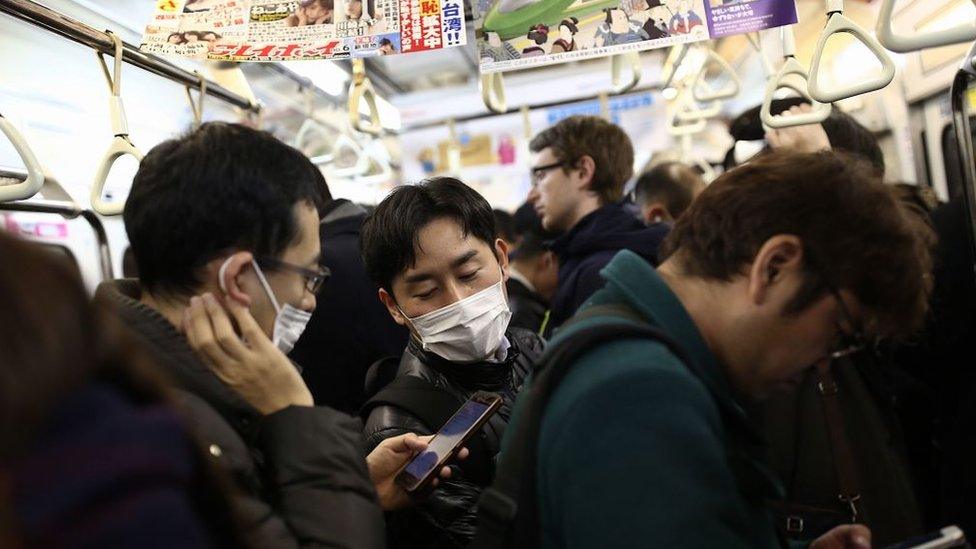
Cities like Seoul in South Korea, Tokyo in Japan and Beijing in China are very densely populated, and so people often wear masks because they know that on public transport or even in the street, they are likely to come into close contact with a very high number of people.
This means they more likely to be exposed to bacteria and infections.
To disguise your identity
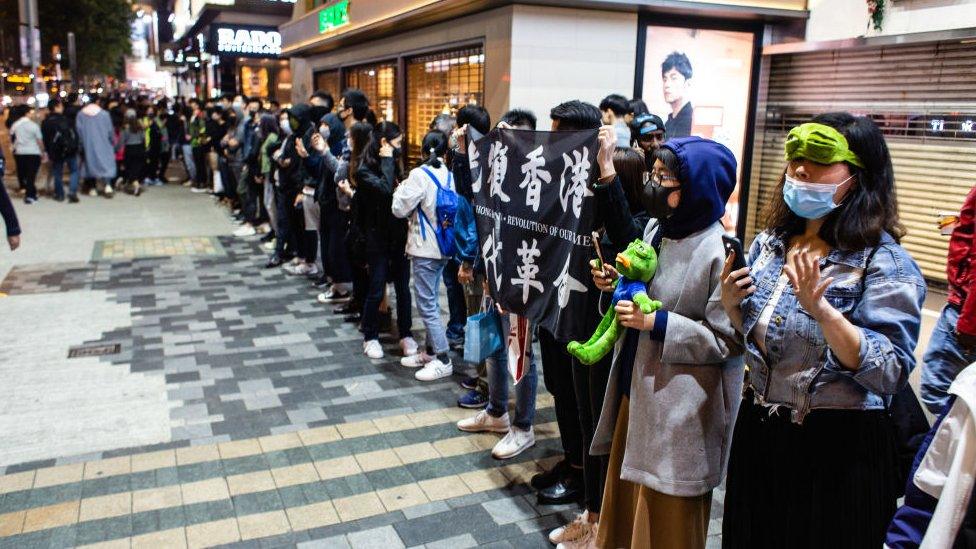
During the recent protests in Hong Kong many people wore face masks to make it more difficult for the police to tell who they were.
This led to the government banning people from wearing them or covering their faces, but this law was changed once coronavirus was found in the country.
Pollution
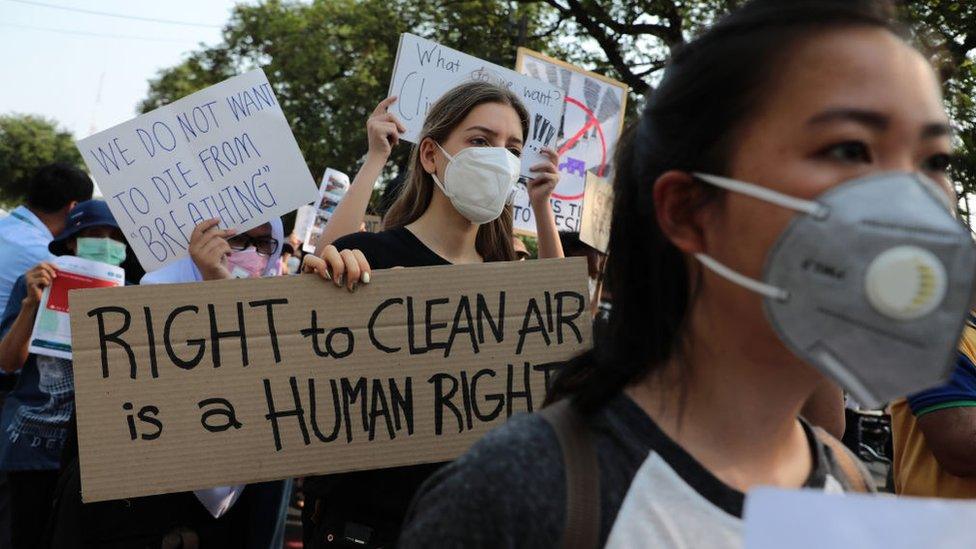
These masks are often more high tech than the surgical ones being worn now, with proper filters to try and help improve the air quality.
Many cities in China have extremely high levels of pollution and so masks make it possible for people are to carry on with their daily lives when the air quality is particularly bad.
Hay fever
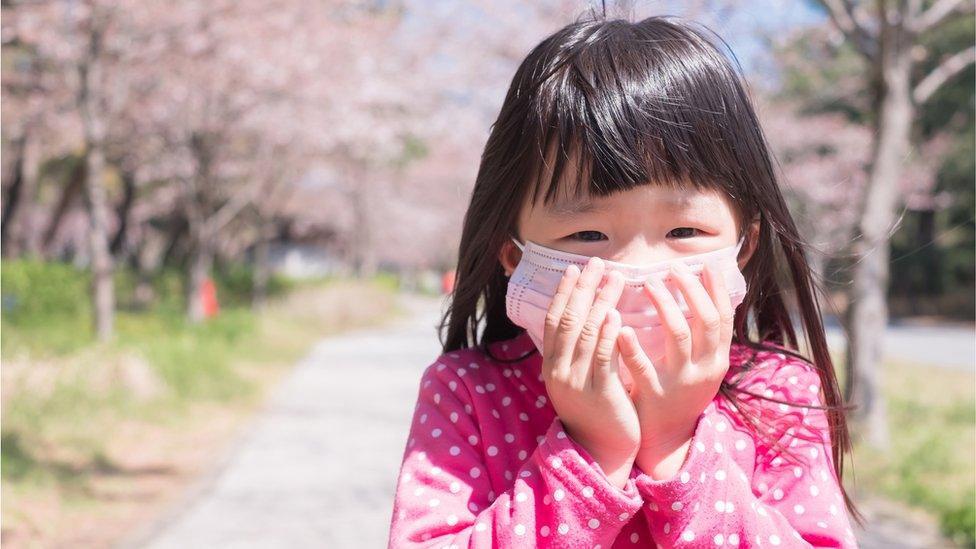
Some hay fever sufferers wear a pollen mask, which prevents pollen and other particles from entering your lungs. This helps relieve their symptoms and can make outdoor life bearable again, when pollen counts are high.
Spring in Japan famously brings pink and white cherry blossoms, but one side effect is clouds of pollen that make noses stream and eyes itch.
Fashion
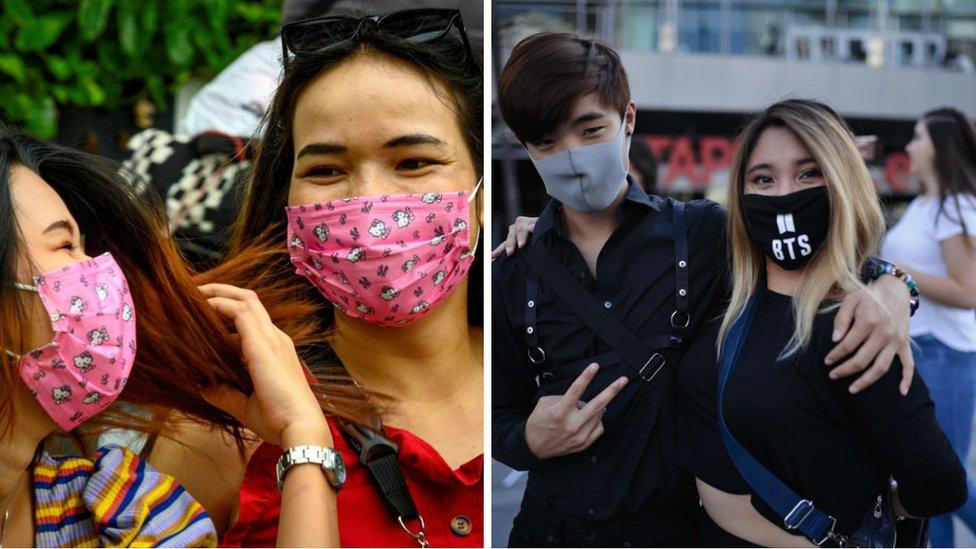
In many east Asian countries, especially Japan and South Korea, face masks are often worn as an accessory rather than because they are actually necessary.
Most of the time these masks don't do anything to filter the air, and there are lots of different colours and designs to choose from, with even Hello Kitty and BTS themed masks on sale!
Different masks can even come in and out of fashion, black masks becoming the new trend after K-pop bands started wearing them.
Protection against the weather
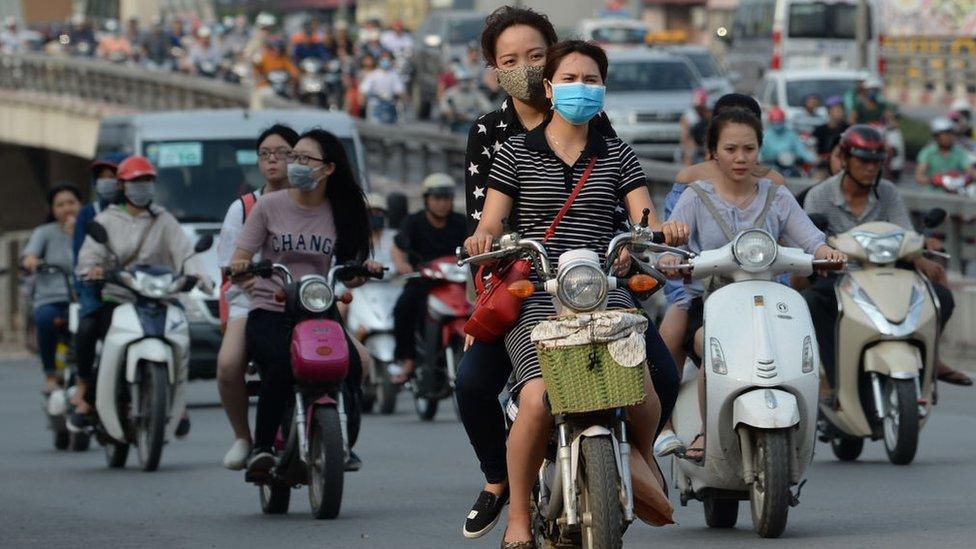
In Vietnam many people also wear face masks because it is an easy way help protect their skin from the sun. Lots of people there get around on motorbikes rather than by car, so they wear a mask rather than sun cream, as it not only prevents UV damage, but protects their hair and eyes.
Meanwhile a Japanese professor called Mitsutoshi Horii said his mother wore a mask in cold weather because, "during the winter, her throat gets dry, and it keeps her face warm".
So really, you can wear a mask for any reason that you like!
- Published19 November 2020
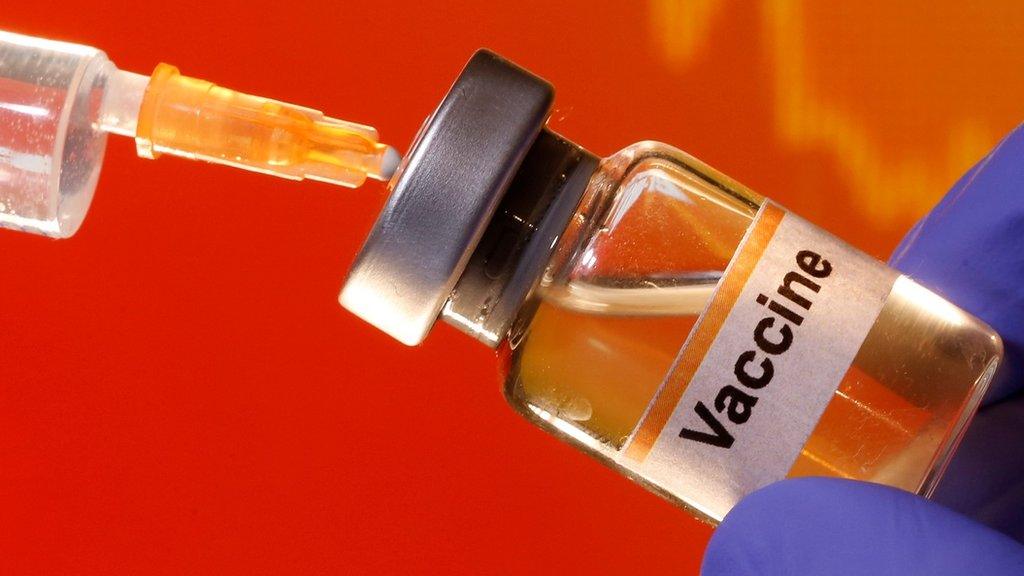
- Published4 February 2020

